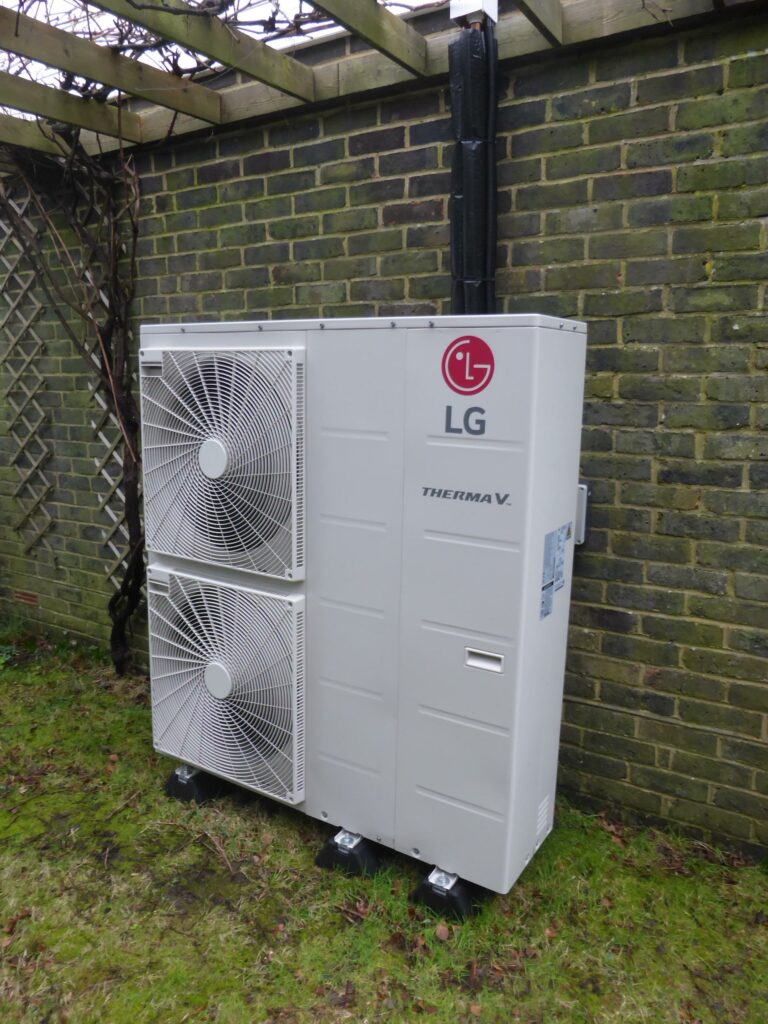The UK government has announced a £80.6 million funding package to develop greener, low-cost heating systems in 4 new projects in England.
The funding will be allocated across multiple projects with different ambitions. For example, £8 million of government investment will go to improving 34 inefficient heat networks across the country by creating a more reliable heating supply and upgraded system for more than 9,000 residents.
Another £11 million aims to provide a recycled heating source for the local community of Bolton, using waste heat from the town’s sewer.
Among the chosen projects are those that focus on installing heat pumps in homes, commercial spaces and businesses in certain regions.
More than half the funding (£42.5 million) will be awarded to Exeter Energy Network for building a new network of air-source heat pumps and one of the UK’s largest high-temperature water-source heat pumps.
It is estimated that buildings connected to the network will see an initial reduction of 65-75% in carbon emissions compared to gas heating.
London’s Greenwich Peninsula ESCO District Heating Network will receive £4.6 million to connect over 94,000 square metres of commercial space and more than 9,000 new and existing homes to low-carbon heating.
These spaces will be powered by an air-source heat pump fixed on the roof of the Greenwich Peninsula Energy Centre, which can provide cleaner energy.
Lord Callanan, minister for energy efficiency and green finance, said: “These innovative projects will help drive down energy costs while also demonstrating why the UK has led the way in cutting carbon emissions.
“They show how energy sources can be found in the most unexpected places – as more homes and businesses will benefit from cleaner heating and lower energy bills.”
A national heat pump effort
The UK government has been steadily investing in heat pump installations since 2022 when it announced the Boiler Upgrade Scheme (BUS).
This scheme offers upfront capital grants for households and small businesses looking to replace their fossil fuel heating system with a heat pump or biomass boiler.
When the BUS was initially launched, it received £450 million in funding which was meant to last until the scheme’s deadline of 2025.
This deadline has since been extended to 2028 as part of the Powering Up Britain announcement made in March 2023, which then triggered a further £1.5 billion investment from the government in December 2023.
On a smaller and more specific scale, Leeds City Council launched a new scheme in the first week of January 2024 which aimed to provide free installation of energy-saving green measures for hundreds of local households.
The measures included new insulation, heat pumps and solar panels for eligible households free of charge. Landlords eligible for the scheme will receive two-thirds off of any installation fees for the same improvements.
Funding for the scheme was supported by £15.5 million of government investment as part of the Home Upgrade Grant, a project which has allocated similar packages to other British cities.
It has reached the point at which companies are looking to evolve past the basic uses and benefits of a heat pump, with National Grid launching the second stage of its EQUINOX (Equitable Novel Flexibility Exchange) trial in December 2023.
This project, funded by the Ofgem Network Innovation Competition (NIC), allows heat pumps to provide flexibility services for the home and grid.
The feedback from the first trial was “overwhelmingly positive,” according to the National Grid, and reported that 92% of participants were “moderately or extremely satisfied” with their experience.






